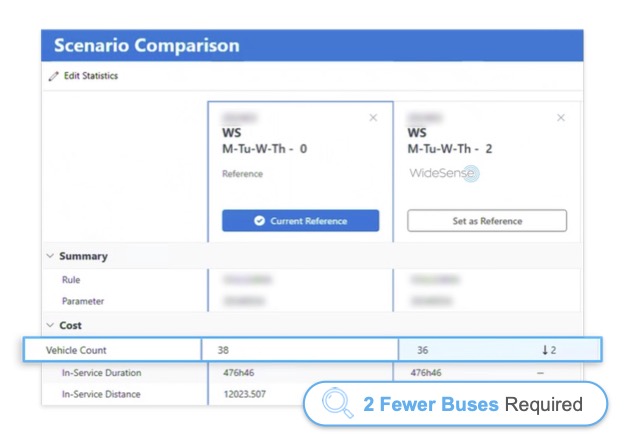WideSense Adaptive EV Consumption Models-as-a-Product
WideSense Adaptive EV Consumption Models take the guesswork out of scheduling electric buses. Unlike gas or diesel buses, Battery-Electric eBuses have varying energy needs depending on the route, traffic, and weather—factors that change daily. Many transit agencies rely on rough estimates or averages, leading to either unnecessary extra buses or the risk of vehicles running out of charge mid-route. WideSense uses real-world data to train digital twins and create accurate energy forecasts for every bus, every trip, at any time of day, helping transit agencies schedule with confidence.
By continuously learning from actual bus performance, WideSense ensures agencies can optimize schedules, avoid unnecessary costs, and keep passenger service running smoothly. It works with existing scheduling software, making it easy to integrate without disrupting operations. The result? More efficient electric bus use, fewer service disruptions, and a smarter, more cost-effective transition to sustainable transit.

Example : a leading global Public Transit Operator (PTO) saved $3M on a single service concession by adopting our adaptive models for eBus scheduling.
The above comparison from the HASTUS scheduling tool shows the number of eBuses required using legacy consumption models (left) and WideSense Adaptive Consumption Models (right).
Role: VP Product & Marketing
Company: WideSense
Launch: 2025
• Identified a market gap through research, customer insights, and industry observation.
• Repurposed WideSense’s existing energy modeling technology into a new, standalone product.
• Defined product strategy, positioning, and value proposition.
• Developed all collateral, including messaging, sales materials, and marketing assets.
• Led go-to-market execution across sales enablement, social media, and email campaigns.
• Expanded WideSense’s market reach by unlocking new customer segments.
